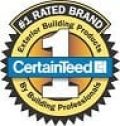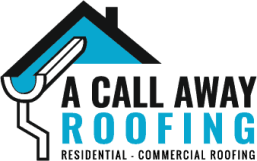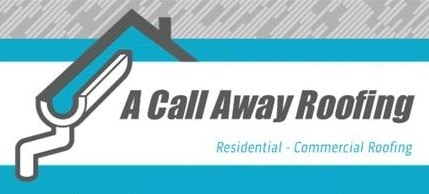ROOF REPAIR | ROOF REPLACEMENT | NEW CONSTRUCTION
Residential Roof Coatings - Roof Coatings Can Save You Thousands!
Residential Flat Roofs: Pros, Cons, and Maintenance Tips
Residential flat roofs are a popular choice for many homeowners, providing a modern and stylish look to any property. Flat roofs are typically made from a range of materials, including EPDM rubber, PVC, and TPO. These materials are designed to provide a durable and long-lasting finish that can withstand harsh weather conditions, including heavy rain, snow, and wind.
One of the key benefits of flat roofs is their versatility. They can be used on a wide range of properties, including residential homes, commercial buildings, and even industrial units. This makes them a popular choice for property developers and architects who are looking to create modern and innovative designs that stand out from the crowd.
Despite their many benefits, flat roofs can also pose some challenges. One of the main issues is the potential for water damage, which can occur if the roof is not installed or maintained correctly. However, with the right materials and a professional installation, flat roofs can provide a long-lasting and reliable solution for any property.
Types of Residential Flat Roofs
When it comes to flat roofs, there are three main types that are commonly used in residential buildings. These are built-up roofing, modified bitumen roofing, and single-ply roofing.Built-Up Roofing
Built-up roofing (BUR) is a traditional type of flat roofing that has been used for over a century. It is made up of multiple layers of roofing felt that are bonded together with hot tar or asphalt. The final layer is covered with gravel or a reflective coating to protect it from the elements. One of the advantages of BUR is that it is very durable and can last up to 30 years with proper maintenance. It is also relatively inexpensive compared to other types of flat roofing. However, it can be heavy and may require additional support to be added to the building structure.Modified Bitumen Roofing
Modified bitumen roofing is a more modern type of flat roofing that is made up of a single-ply membrane that is reinforced with fiberglass or polyester. The membrane is typically made from asphalt that has been modified with rubber or plastic to increase its durability. Modified bitumen roofing is lighter than BUR and easier to install. It is also more resistant to damage from UV rays and weathering. However, it may not be as durable as BUR and may require more frequent maintenance.Single-Ply Roofing
Single-ply roofing is a type of flat roofing that is made up of a single layer of roofing material. The most common types of single-ply roofing are made from either PVC or EPDM. PVC is a type of plastic that is very durable and resistant to damage from UV rays and weathering. EPDM is a type of rubber that is also very durable and can last up to 50 years with proper maintenance. One of the advantages of single-ply roofing is that it is very lightweight and easy to install. It is also very flexible, which makes it ideal for roofs that have a lot of curves or angles. However, it can be more expensive than other types of flat roofing and may not be as durable in extreme weather conditions. Overall, each type of flat roofing has its own advantages and disadvantages. The best choice will depend on the specific needs and budget of the homeowner.Coating Residential Flat Roofs: Benefits and Application Process
Coating residential flat roofs is an effective way to extend the life of a roof and protect it from damage caused by weather and other environmental factors. Roof coatings can help reduce energy costs by reflecting sunlight and reducing the amount of heat absorbed by the roof. They can also help prevent leaks and other types of damage by providing an additional layer of protection. There are several types of roof coatings available, including acrylic, silicone, and polyurethane coatings. Each type of coating has its own unique properties and benefits. Acrylic coatings are durable and resistant to UV rays, while silicone coatings are highly resistant to water and can be applied to a variety of surfaces. Polyurethane coatings are extremely durable and can withstand harsh weather conditions. When choosing a coating, it is important to consider the specific needs of the roof and the environment in which it is located.Benefits of Coating Residential Flat Roofs
Extended Roof Life
Coating a residential flat roof can significantly extend its lifespan. The coating acts as a protective layer against harsh weather conditions, UV rays, and other environmental factors that can cause damage to the roof. By preventing water from seeping into the roof’s structure, the coating helps to prevent leaks and other forms of water damage. This not only extends the roof’s life but also reduces the need for costly repairs.Energy Efficiency
Coating a residential flat roof can also improve energy efficiency. The coating reflects sunlight and heat, reducing the amount of heat that is absorbed by the roof. This, in turn, reduces the amount of heat that is transferred into the building, helping to keep the interior cooler and reducing the need for air conditioning. This can lead to significant energy savings and lower utility bills.Improved Aesthetics
Coating a residential flat roof can also improve the overall appearance of the building. The coating can be customized to match the color of the building, creating a seamless and attractive look. This can enhance the curb appeal of the property and increase its value. In summary, coating a residential flat roof can extend its lifespan, improve energy efficiency, and enhance the building’s appearance. These benefits make it a wise investment for homeowners looking to protect their property and reduce their energy costs.Types of Coatings
When it comes to coating residential flat roofs, there are three main types of coatings to consider: Acrylic Coatings, Silicone Coatings, and Polyurethane Coatings.Acrylic Coatings
Acrylic coatings are a popular choice for residential flat roofs due to their affordability and ease of application. They are water-based and offer good UV resistance, which helps to prolong the life of the roof. Acrylic coatings are also available in a range of colors, making them a versatile option for homeowners. However, acrylic coatings are not as durable as some other types of coatings, and they may require more frequent maintenance. They also have a tendency to become brittle over time, which can lead to cracking and peeling.Silicone Coatings
Silicone coatings are a more expensive option, but they offer superior durability and resistance to weathering. They are also highly reflective, which can help to reduce energy costs by keeping the roof cooler. Silicone coatings are applied in a single layer, which makes them easier to apply than some other types of coatings. They are also highly resistant to UV rays, which helps to prevent fading and cracking over time.Polyurethane Coatings
Polyurethane coatings are a popular choice for flat roofs that are frequently exposed to foot traffic or other types of wear and tear. They are highly durable and resistant to damage from impact, making them a good choice for commercial or industrial buildings. Polyurethane coatings are available in both solvent-based and water-based formulations. They offer good UV resistance and are highly reflective, which can help to reduce energy costs by keeping the roof cooler. Overall, the type of coating that is best for a residential flat roof will depend on a variety of factors, including the climate, the level of foot traffic, and the homeowner’s budget. By understanding the pros and cons of each type of coating, homeowners can make an informed decision that will help to protect their roof and extend its lifespan.Commercial Roof Services
Whether you need a Roof Quote or emergency Roof Repair work, we are available to service your roofing needs. We offer affordable roofing services.
People We Work With






Request A Quote Today
...
Reach Us
Location :
1434 Tramway Rd, Suite 2, Sanford, NC 27332
Email :
acallawayroofing@gmail.com
Phone :
+1-919-578-6505
[wpforms id="1625" title="false" description="false"]

